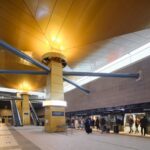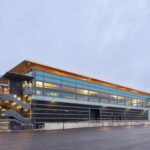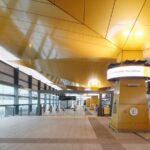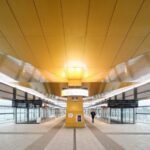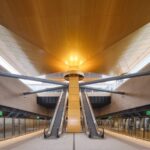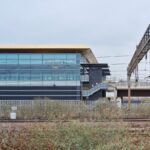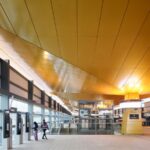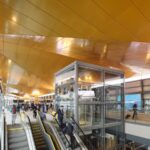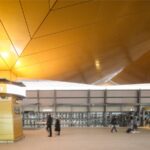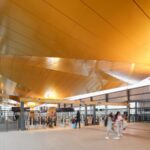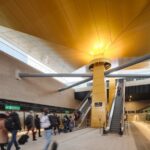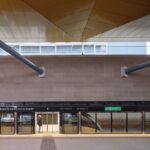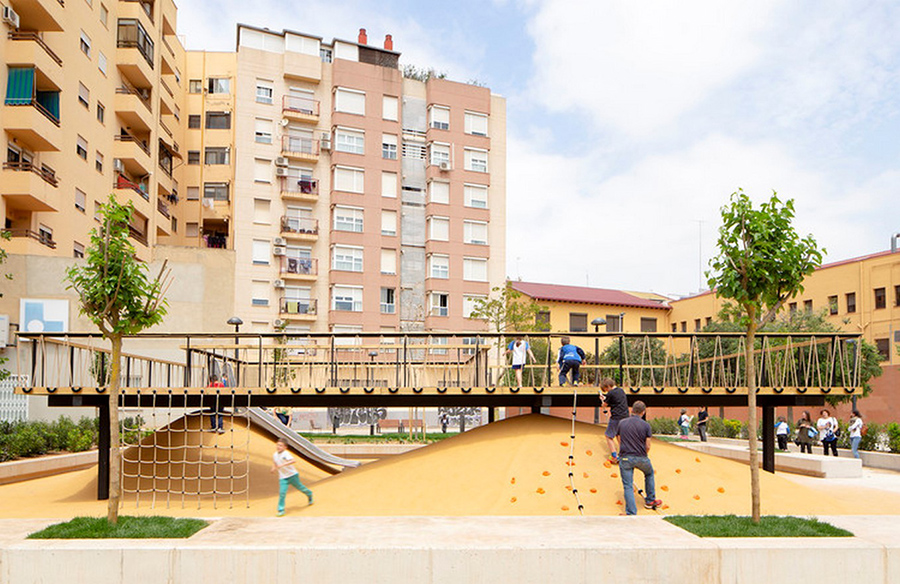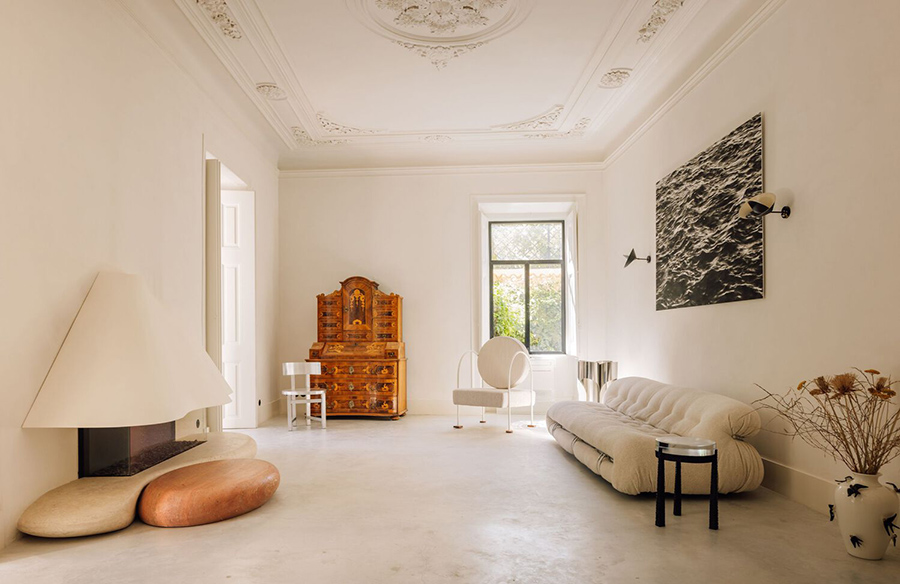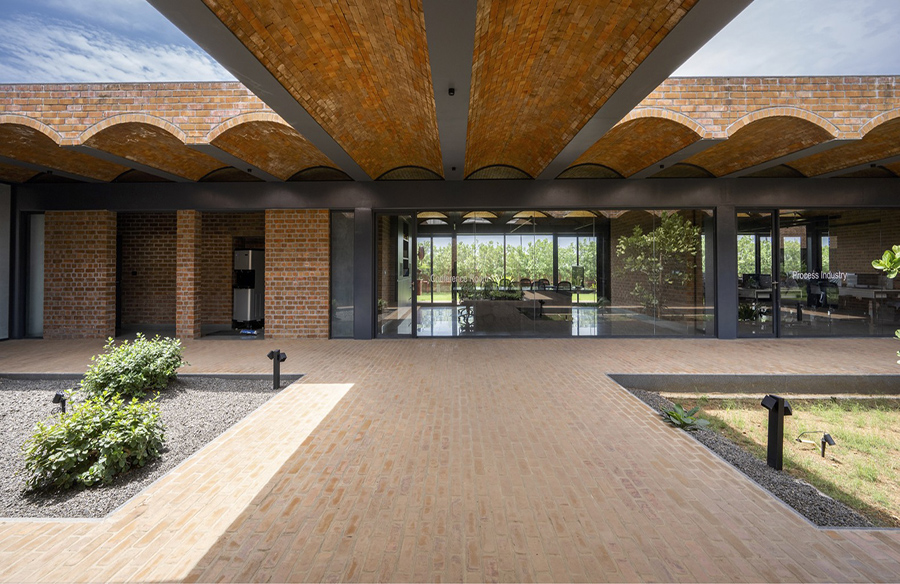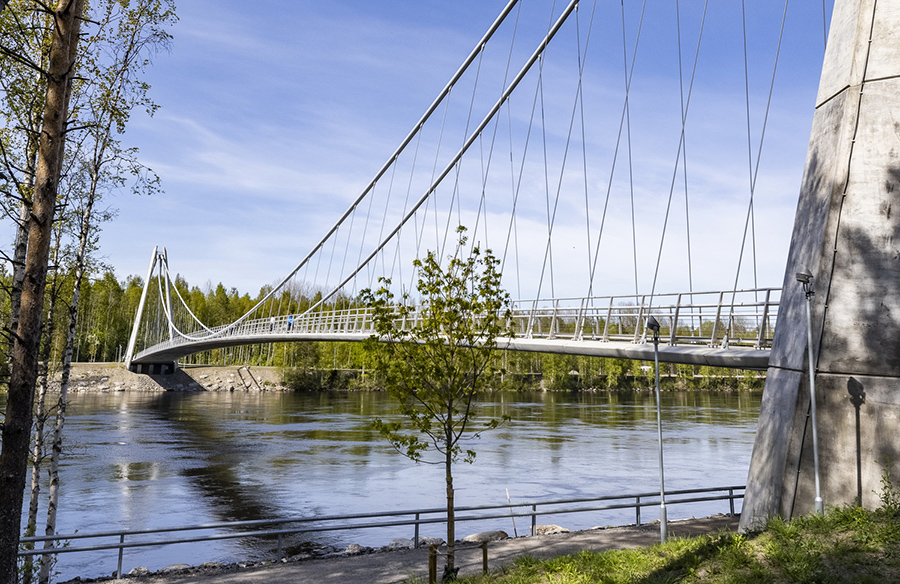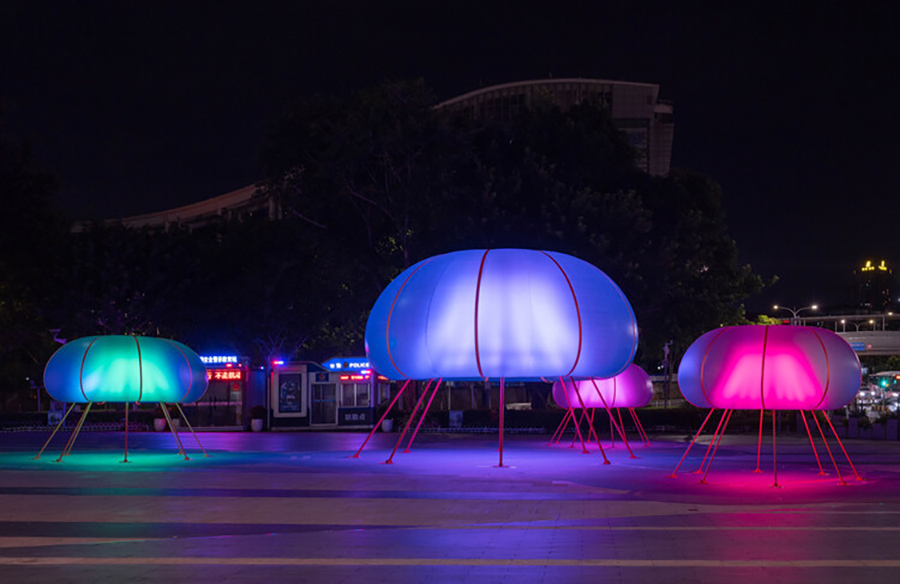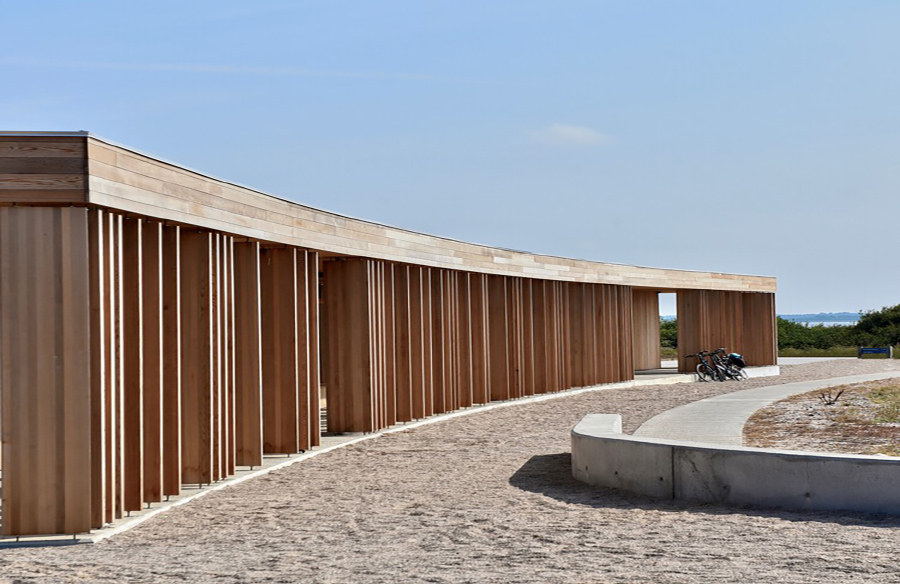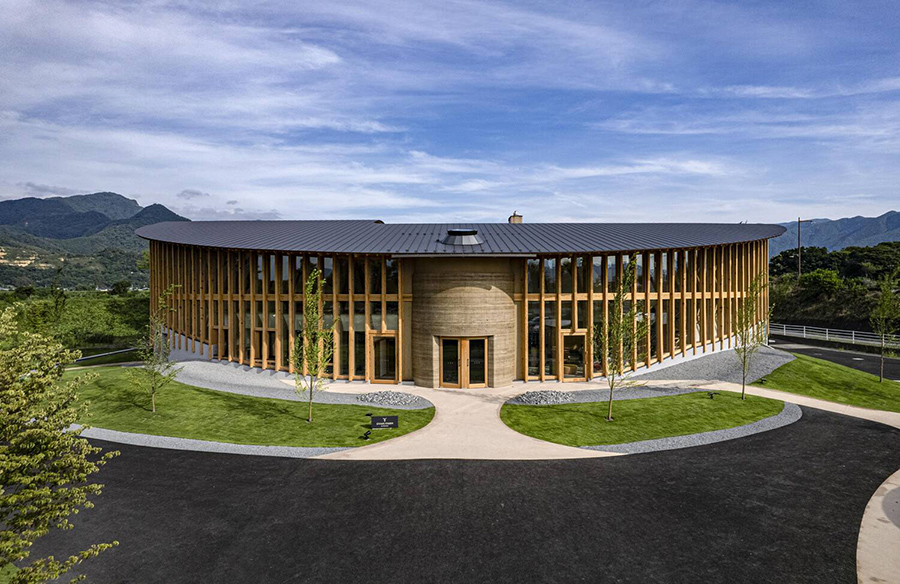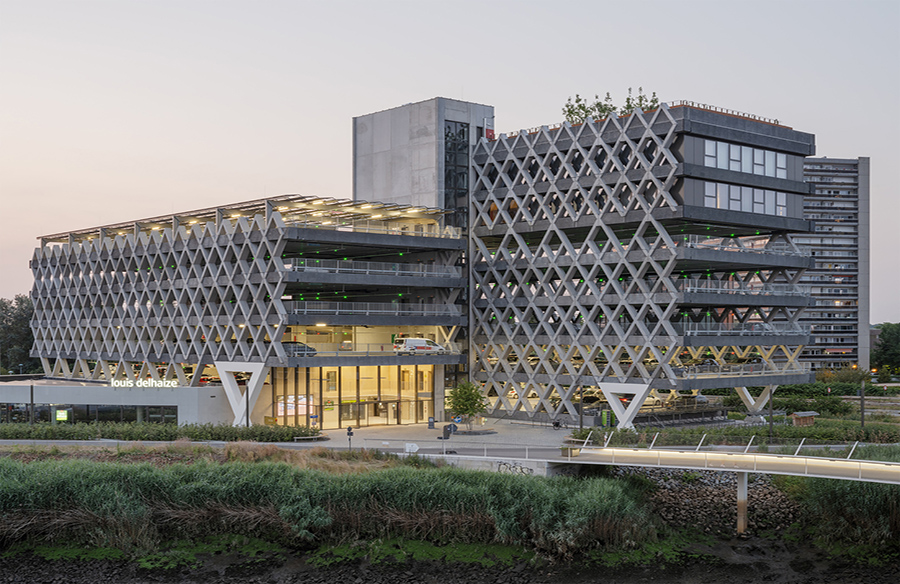The Luton DART (Direct Air-Rail Transit) is a cutting-edge automated people mover, revolutionizing travel between Luton Airport Parkway railway station and London Luton Airport’s terminal. Designed and executed by a diverse team of experts at Arup, including architects, engineers, planners, and specialists, the project aims to streamline passenger journeys while prioritizing sustainability and user experience.
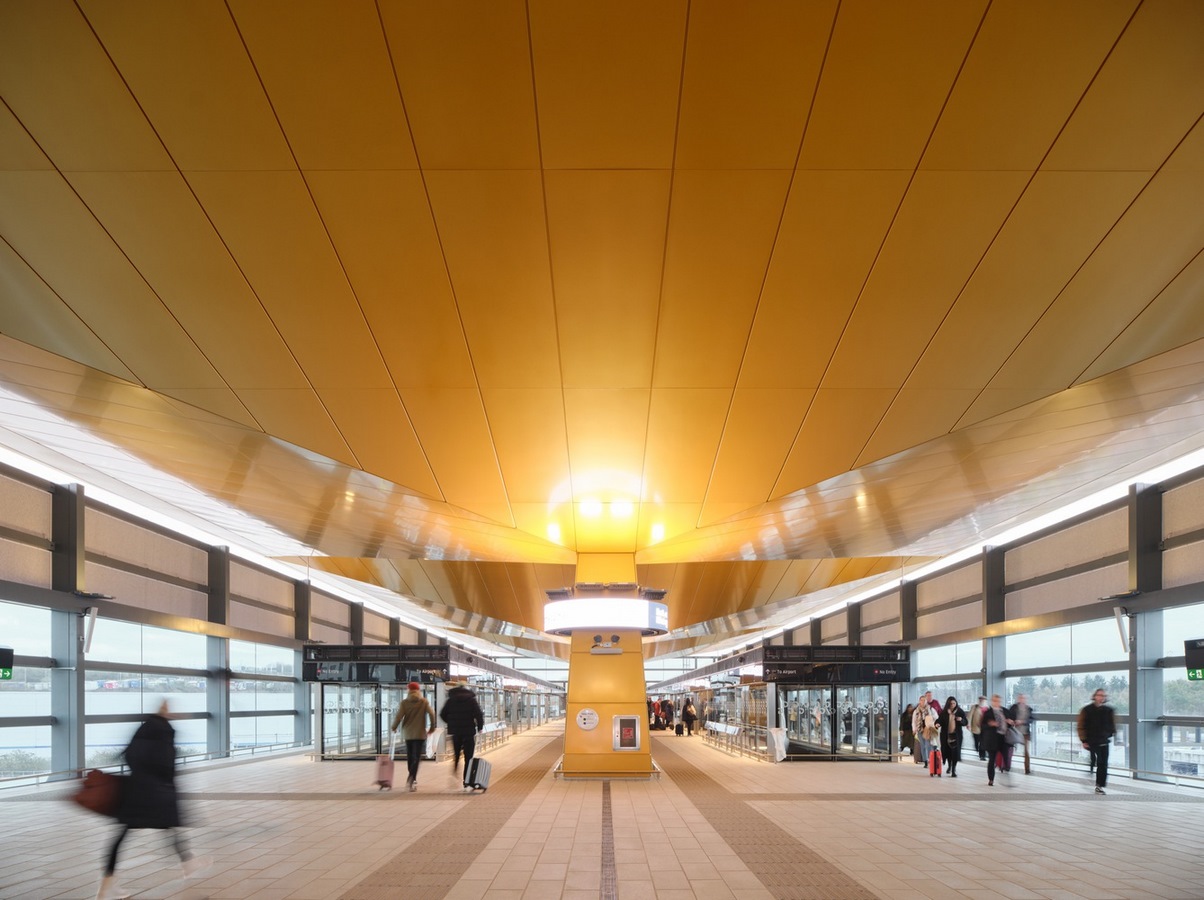
Architectural Design
Arup’s Architecture team conceptualized a cohesive design language featuring bold parasol structures that adorn the stations’ roofs. These structures not only provide shelter from the elements but also allow natural light and ventilation, creating spacious and welcoming environments for passengers.
Improved Connectivity
The introduction of the Luton DART significantly enhances airport connectivity, offering passengers faster, greener, and more efficient travel options. By reducing reliance on car travel, the DART contributes to environmental sustainability while enabling quicker access to the airport from various rail network points.
Collaborative Effort
The development of the Luton DART represents a substantial investment in civil infrastructure by Luton Borough Council’s airport company, Luton Rising. Arup played a pivotal role in collaborating with Luton Rising to realize their vision of a world-class airport experience. The project involved meticulous planning, costing, procurement, and design, encompassing station architecture, operational systems, and overall readiness.
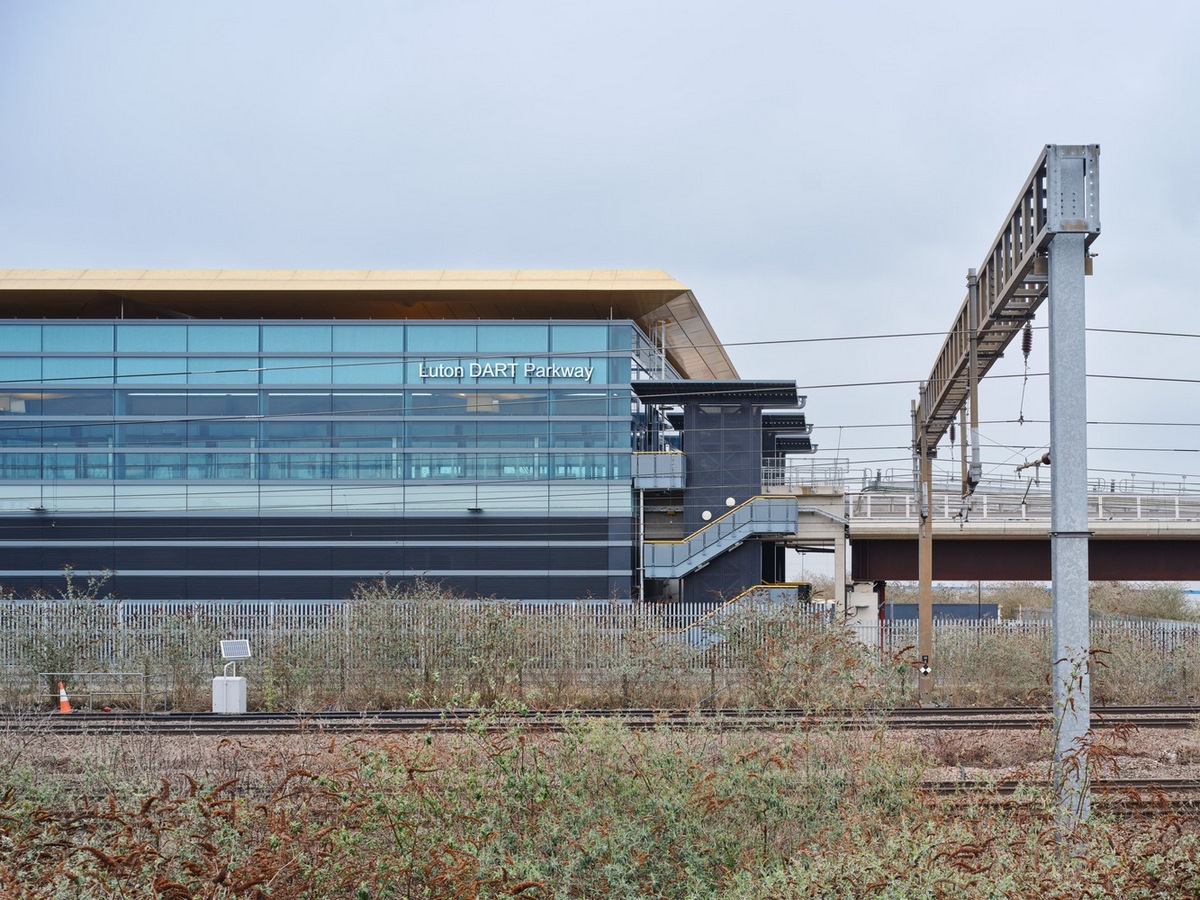
Station Features
Comprising two stations, a viaduct, a bridge, and a tunnel, the Luton DART project prioritizes accessibility and user-friendliness. The stations feature intuitive layouts and navigational aids, ensuring a seamless experience for passengers. Additionally, tactile paving and audio induction loops enhance accessibility for all travelers.
Sustainability Initiatives
Arup’s design integrates sustainable elements to minimize the project’s environmental impact. The stations prioritize natural ventilation and energy-efficient systems, reducing operational carbon footprint. Moreover, the innovative electric drive system incorporates energy recovery during braking, further optimizing energy usage across the transport system.
Aesthetics and Wellbeing
The architectural design of the DART stations focuses on passenger comfort and wellbeing. Bright parasol structures, held by centrally loaded columns, add a touch of elegance and joy to the stations. Highly reflective cladding maximizes daylighting, enhancing the overall ambiance and promoting staff and passenger wellbeing.
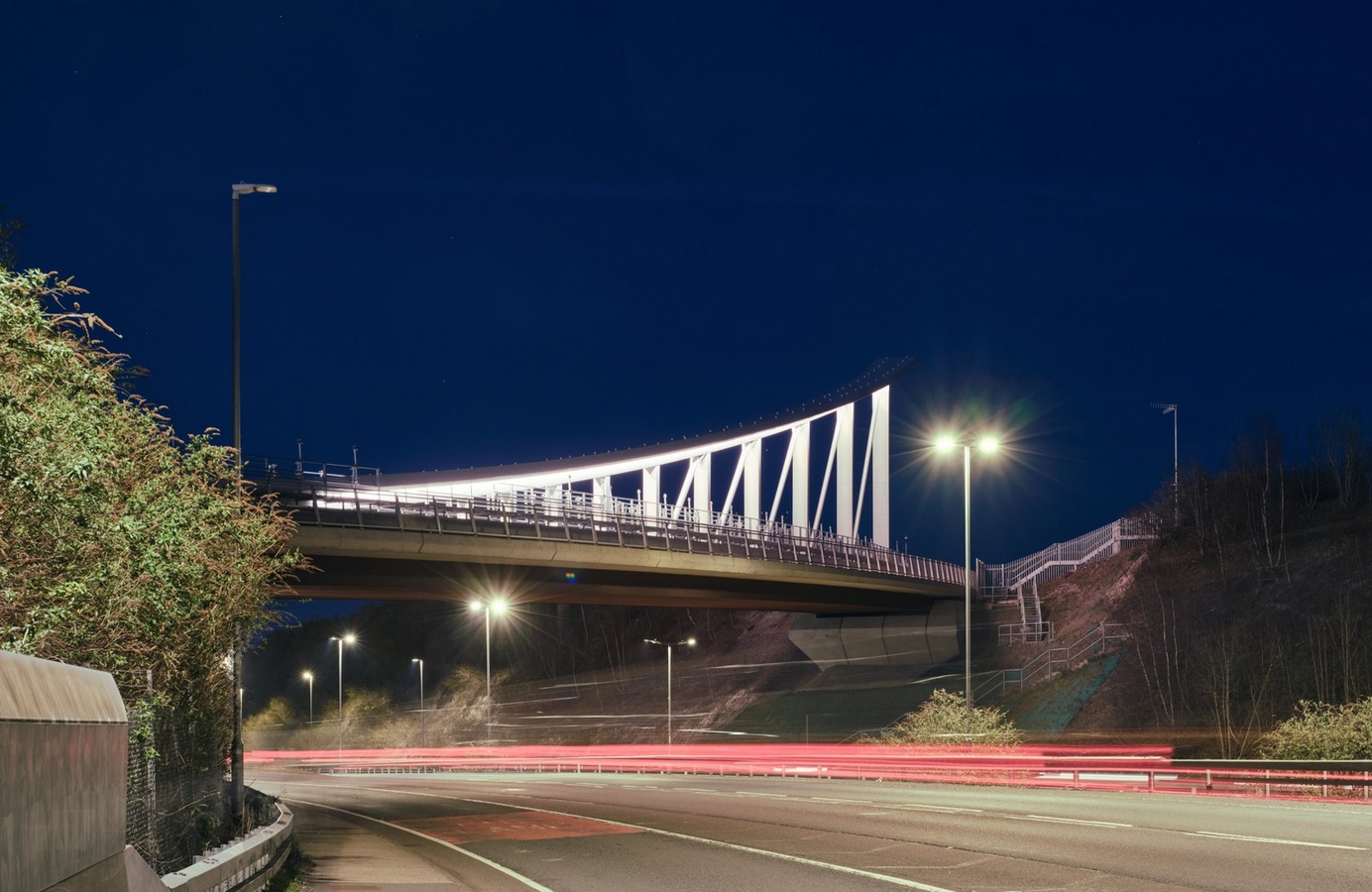
Conclusion
The Luton DART project exemplifies a successful collaboration between architects, engineers, and specialists to deliver a modern, efficient, and environmentally conscious transport solution. By prioritizing connectivity, sustainability, and passenger experience, the project sets a new standard for airport transit systems, enhancing travel efficiency and passenger satisfaction.

